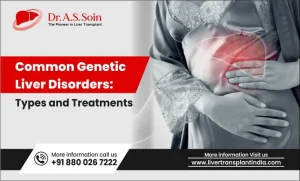A liver transplant offers a second chance at life for individuals with end-stage liver disease. While the surgery is a significant milestone, the journey to recovery involves an ongoing commitment to healthy habits.
Dr. A.S. Soin from Liver Transplant India specializes in providing a comprehensive outlook on the best practices to follow after surgery to ensure optimal recovery. Diet and lifestyle factors play a crucial role in this process.
If you are looking for detailed guidance on optimizing the function of your new liver and maximizing overall well-being after surgery, this guide has all the relevant details.
Table of Contents
ToggleDietary Guidelines for Liver Transplant Recipients
Following a liver transplant, your healthcare team, including a registered dietitian, will create a personalized dietary plan tailored to your specific needs and pre-existing conditions. Here are some important factors to prioritize:
- Focus on Whole Foods: Stick to a diet of unprocessed foods that nourish the body without putting a metabolic strain on the liver.
- Include Fresh Fruits and Vegetables: Rich in antioxidants, vitamins, minerals, and fiber, fresh fruits and vegetables are crucial for supporting your new liver and promoting overall well-being.
- Stick to Lean Protein Sources: Avoid complex proteins like red meat with high saturated fat content. Opt for lean proteins such as fish, poultry, and legumes.
- Prioritize Fiber-Rich Foods: Fiber aids digestion, regulates blood sugar levels, and promotes gut health. Include whole grains, fruits, and vegetables to ensure adequate fiber intake.
- Maintain a Healthy Fat Balance: Limit saturated and trans fats found in processed foods, fried items, and red meat. Increase intake of healthy fats like those in olive oil, avocado, nuts, and seeds.
- Reduce Salt Intake: Minimize salt intake to reduce the risk of hypertension or high blood pressure, a potential post-transplant complication. Avoid processed foods and added table salt.
- Limit Sugar Intake: Regulate sugar intake, especially refined sugars, to prevent weight gain and other health issues. Opt for foods with natural sugars, like fruits, and avoid sugary drinks and processed snacks.
- Stay Hydrated: Drink an adequate amount of water daily to ensure optimal liver function. Aim for eight glasses of water per day, adjusting based on individual health and hydration needs.
Foods to Limit or Avoid After a Liver Transplant
- Alcohol: Alcohol is hepatotoxic and can damage the liver, leading to rejection of the transplanted organ.
- Grapefruit and Grapefruit Juice: These can interact with anti-rejection medications, so they must be avoided.
- Raw or Undercooked Foods: With a suppressed immune system, there’s a higher risk of infections from raw or undercooked foods. Ensure all food is thoroughly cooked.
- Unpasteurized Dairy Products: These may contain harmful bacteria. Stick to pasteurized dairy products.
- Processed Meats: High in sodium and unhealthy fats, processed meats like deli meats, hot dogs, and sausages can strain the new liver.
- Shellfish: Raw shellfish can carry a higher risk of infection. Ensure they are thoroughly cooked.
Lifestyle Modifications for Optimal Health
- Exercise: Engage in moderate-intensity exercise for 20-30 minutes daily once you are cleared by your doctor. Physical activity promotes overall health, including liver function, weight management, and bone health.
- Prioritize Quality Sleep: Aim for 7-8 hours of quality sleep per night. Establish a regular sleep schedule and practice good sleep hygiene.
- Manage Stress: Chronic stress can negatively impact your new liver. Engage in stress-relieving activities like yoga, meditation, or deep breathing.
- Avoid Smoking: Smoking can damage your new liver. Quit smoking and avoid second-hand smoke.
- Maintain Dental Hygiene: Good dental hygiene prevents mouth infections, which can spread to other parts of the body. Brush and floss regularly and schedule regular dental checkups.
- Minimize Contact with Germs: Practice good hand hygiene, avoid crowds during flu season, and maintain a clean living environment. Avoid contact with sick individuals.
Importance of Long-Term Follow-Up Care
Regular follow-up care is essential for ensuring optimal health and well-being after a liver transplant. These appointments may include:
- Blood Tests: To assess liver function, medication levels, and overall health.
- Biopsies: In some cases, to evaluate the health of your new liver.
- Imaging Tests: Like ultrasounds or CT scans to monitor your liver for abnormalities.
Initially, follow-up appointments will be frequent, but as recovery progresses, they may be reduced to once every three months or twice a year.
Conclusion
A liver transplant offers a renewed chance at life. By adhering to a healthy diet, embracing a healthy lifestyle, and attending regular follow-up appointments, you can optimize the function of your new liver, minimize the risk of complications, and enjoy a fulfilling life.
If you are struggling with liver complications and end-stage liver failure, consult Dr. A.S. Soin, a pioneer in liver transplantation, for a comprehensive evaluation and treatment plan. Schedule your consultation at (+91) 8800276222, 9999282222, or 8800267222.








